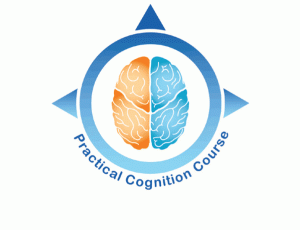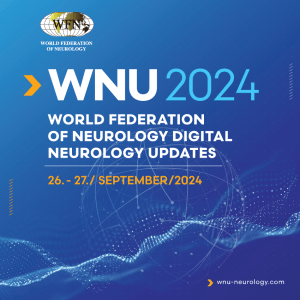
Have you ever thought that your assessment of patients with cognitive impairment could be improved, wondered how to interpret neuropsychological testing, or wanted to explore the beer cellars of Trinity College? Well the VIIth practical cognition course delivered on all of these and far more in a thought provoking two days!
It was a cool, but refreshing September morning. As I buttoned up my coat to shield me from the icy breeze, I couldn’t help but stop to take in the architecture and history around me as I walked up the road to St Anne’s College. Once I arrived, the seminar room gradually filled to near capacity with a varied audience of delegates from neurology, geriatrics, psychiatry, psychology and speech and language therapy.
Following a brief introduction from Tim Griffiths, the course got underway with Chris Butler talking through “what neurologists do in the cognitive clinic” covering key aspects of the history and examination. In the second talk Andrew Larner discussed the merits of various different cognitive instruments and guided us through the evidence for using these. Not too surprisingly the Adenbrooke’s cognitive examination came out the most sensitive and specific, justifying those extra minutes required to complete it in clinic. Tom Kelly next gave an insight into the neuropsychological evaluation of patients with cognitive impairment with some humorous examples along the way.
After the initial lectures, the scene was set, and our minds were tuned into the cognitive wavelength. Chris Butler then proceeded to chair the discussions of cases of memory disorders. Each example generated interest from the audience, as well as the opportunity to interpret the neuropsychological evaluations and understand their results. One learning point that I took from this session was that impaired categorical compared to letter fluency can be an early sign in Alzheimer’s disease indicating a breakdown in semantic knowledge.
Despite a hearty breakfast that morning, the morning’s activity had left my stomach rumbling. Fortunately we were treated to an inviting spread of hot food, cold meats and salads to keep any hungry delegate going for the rest of the day. And if that wasn’t enough, for dessert there were possibly the largest slices of chocolate cake I think I have ever seen – naturally I shared this with one of my fellow delegates!
After lunch the inevitable postprandial dip approached. Fortunately the afternoon started with a fascinating talk from Sinéad Mullaly on “what does the hippocampus do?” and my attention was held throughout. She discussed the current competing theories of memory consolidation and also shared some of her very interesting research on the role of the hippocampus in imagination and spatial visualisation.
The day continued with case discussions on sleep disorders. We heard of a case, referred to the cognitive clinic, in whom a sleep study proved much more useful than an MRI scan; listened to the bizarre behaviours that can occur in non-REM parasomnias, and pondered a challenging case of hypersomnia and amnesia.
Mid afternoon there was disappointment amongst the neurologists and psychologists in the audience when they found out that “TEA” on the timetable was neither a talk on transient epileptic amnesia, nor on the Test of Everyday Attention; but in fact an opportunity to recharge before the last talk.
Although it was the end of the day and the final talk was on sleep disorders, there was no need for extra coffee to keep the audience awake as Kirstie Anderson delivered a very informative talk on sleep disorders and cognition. After discussing the anatomical models of sleep, she covered the functions of sleep and the effects of sleep deprivation. We also learnt of the wide ranging associations between abnormal sleep and many neurological and psychiatric disorders such as Alzheimer’s disease, depression and schizophrenia.
At the end of an engaging day, everybody headed to Trinity College to unwind and sample what was on offer in the beer cellar. After a few drinks people headed for dinner in the grand dining hall where paintings of past greats on the wall kept a close eye on the behaviour of those sat below!
The morning of the second day began with a neuropsychology “show and tell”. Delegates were able to look through and discuss the various different tests utilised in an assessment with the neuropsychologists on hand. It was also an opportunity to test each other and work out who had enjoyed a few too many beers and not enough sleep the night before!
Chris Butler next presented clinical cases of motivation and apathy. We discussed the wide differential for potential causes of apathy and heard how patients with Parkinson’s disease can experience particular problems in this area. Following on, Masud Husain gave an insightful talk on apathy and disorders of motivation, and we heard of a fascinating case of a middle aged man with significant apathy that improved with treatment with the dopamine agonist ropinirole. We were all left walking to lunch wondering if some of our colleagues could benefit from a dose of ropinirole now and then!
The afternoon began with case discussions of movement disorders associated with abnormalities of cognition. This section highlighted how the neurological examination can occasionally be very informative in patients with cognitive complaints, typified by one patient who presented with progressive frontal dysfunction without any motor complaints but an obviously abnormal examination. A number of cases included videos which really helped highlight some of the subtle signs that can easily be missed if they are not looked for.
James Rowe finished the course with an excellent coverage of the presentations of PSP and CBD, consolidating on some of the earlier cases. We learnt how verbal fluency for the letter P can be particularly sensitive in differentiating between Parkinson’s disease and PSP. More importantly however, he discussed the need for a multidisciplinary approach in managing patients with conditions such as PSP, and that although called “movements disorders”; the motor symptoms are only a small part of what can be a disabling disease.
All that remained at the end of the day was for us to complete our feedback forms on what had been two very worthwhile days of learning that will certainly change my future practice. I particularly enjoyed the balance of lectures and case discussions that kept the course interesting and the audience engaged. The use of patient videos really helped illustrate some key learning points in what was overall a very practical and clinically relevant course. I would certainly recommend it to anyone who is considering going next year!
The next Practical Cognition Course takes place at the Research Beehive, University of Newcastle on the 1st and 2nd of October 2015.
ACNR 2015;14(6);26. Published online 15/12/14

